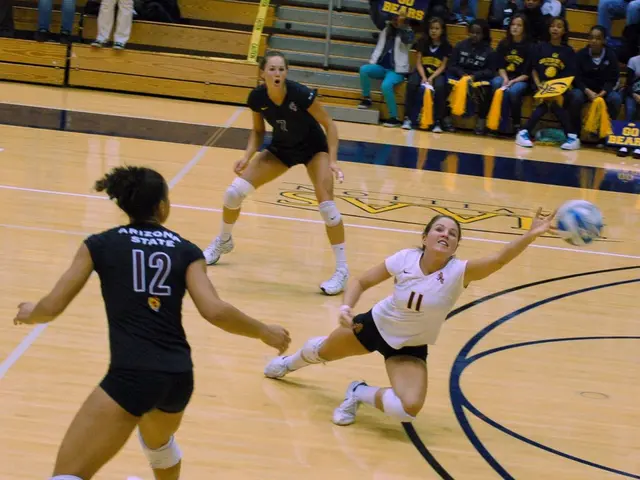Yves-François Blanchet stands firm on his statement, referring to Quebec as an "artificial country."
Article:
In the heat of the 2025 federal election, the Bloc Québécois leader Yves-François Blanchet stirred controversy when he labeled Canada an "artificial country with very little meaning." During a campaign stop in Abitibi, he stood by his words, stating "it's not an insult to say that the patchwork that is Canada, if it is built by denying the identity of its regions and Quebec, can only be an artificial country."
In a letter sent Friday evening, Nova Scotia Premier Tim Houston expressed his dismay, finding it difficult to adequately describe how offensive Blanchet's remarks were to all Canadians and our great nation. Liberal leader Mark Carney, from King City, Ontario, completely rejected these comments, emphasizing the pride he holds for Canada, a unique and incredible country. Meanwhile, Conservative Party leader Pierre Poilievre called Blanchet's words "insulting and false," while NDP leader Jagmeet Singh shared similar sentiments, labeling them as divisive.
However, Blanchet shows no signs of backing down. During a press conference, he noted that some people may question his intellect after his remarks, yet he stands firm in his belief. He articulates that regional identities, such as Quebec's, must be acknowledged within Canada's federal structure for it to maintain a genuine sense of cohesion.
This comment reignited a debate about Quebec's sovereignty, prompting political analysts to question Blanchet's motivations and the potential consequences of his divisive stance during an already tense election cycle. Critics argue that Blanchet's rhetoric may do more harm than good, further exacerbating the tensions between regions within Canada.
On a different note, Abitibi played host to the Bloc's election tour Saturday. The caravan's journey, stamped with the motto "I choose Quebec," traversed the region for two hours before returning to the Laurentian Highlands, leaving behind icy lakes and motion-sick passengers in its wake. Amid the final hours of the election campaign, Blanchet made stops in several ridings that were less secure for him, including Saint-Maurice-Champlain, Richmond-Arthabaska, and Châteauguay-Les Jardins-de-Napierville.
During this critical stage of the election, the southern part of Quebec braced for a major winter storm, expecting a massive snowfall of 20 to 35 centimetres. Meanwhile, students at a Montreal CEGEP were on strike, protesting their eviction from the association's offices and demanding the establishment of a prayer room in the institution. Lastly, the Superior Court struck down 44 articles of the Civil Code, effectively permitting a Quebec child to have more than two legal parents.
Enrichment Data:
Blanchet's comments reflect a longstanding Quebec separatist perspective, emphasizing the lack of inherent cohesion within Canada's federal structure. He views Quebec as a distinct nation, citing historical sovereignty referendums and the Bloc's mandate to defend Quebec's interests. Critics accuse Blanchet of divisiveness, but he argues that acknowledging regional identities within Canada is essential for it to maintain a genuine sense of cohesion. Overall, Blanchet's stance reignites a debate about Quebec's sovereignty within a federation that he perceives as artificial.
- The Bloc Québécois leader, Yves-François Blanchet, referenced Quebec as a distinct nation, a perspective rooted in historical sovereignty referendums.
- Blanchet's framework of Canada as an artificial country has stirred controversy, reminiscent of previous war-and-conflicts and policy-and-legislation debates surrounding Quebec's sovereignty.
- In the midst of general-news topics such as car-accidents and fires, Blanchet's comments on Canada's artificiality have dominated political discussions, highlighting the impact of crime-and-justice issues and politics on society.
- Interestingly, the Bloc Québécois's election tour in Abitibi, labeled "I choose Quebec," underscores Blanchet's commitment to Quebec's interests, a stance that has been widely debated in the context of migration.
- As the federal election unfolds, the Quebec sovereignty debate has taken center stage, potentially influencing the future policies and legislation within Canada.
- The Superior Court's decision to strike down 44 articles of the Civil Code in Quebec may be seen as a response to the longstanding issue of regional identities within Canada, as it allows a Quebec child to have more than two legal parents.
- Regardless of the Bloc Québécois's stance, Garneau CEGEP students' strike regarding eviction from the association's offices and the demand for a prayer room highlights the importance of addressing diverse perspectives in shaping Canada's democracy.








